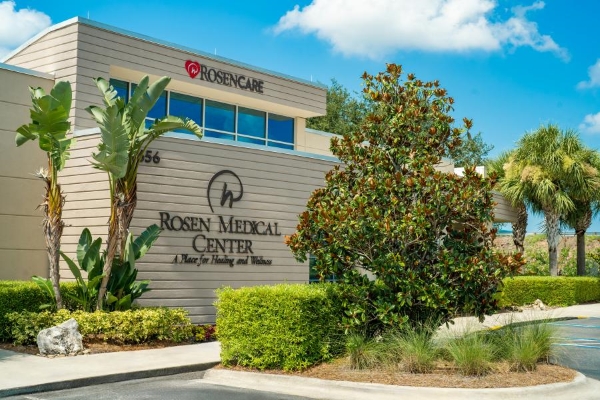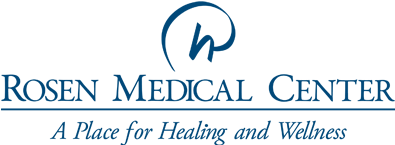By Kate Cohen
In consultation with Dr. Ronald Ryan, MD CPE
July 17, 2025
Aging is a natural part of life.
The choices we make on a day-to-day basis can have a huge impact on our health and wellbeing as we get older.
September is Healthy Aging Month, and we’re here to talk about some of the things you can do to stay healthy and strong as you age.
Here are some of our tips for healthy aging.
Table of Contents
1. Eat a Balance of Nutritious Foods

A balanced diet is key to staying healthy as we age.
Eat a variety of fruits, vegetables, whole grains, and healthy fats to give your body the fuel and nutrients it needs.
As we age, our bodies need even more nutrients to stay healthy.
For example, calcium is a mineral that supports strong, healthy bones. Aging adults tend to need more calcium. Focus on getting extra calcium by eating dairy products or greens like kale and broccoli.
Talk to your healthcare provider about what other nutrients will keep you healthy and strong based on your individual health needs.
2. Stay Physically Active

Physical activity is important at every age. As we get older, our bodies continue to benefit from different kinds of exercises, including aerobic, balance, and muscle strengthening.
Staying active helps reduce the risk of falls, strokes, high blood pressure, and even certain cancers.
Research shows exercise is also wonderful for keeping our brains healthy as we age, too.
It can lead to better moods, higher energy levels, and a stronger memory. Studies show regular exercise can also lower the risk of dementia as we get older, too.
Looking for a place to try a new activity? Rosen Aquatic & Fitness Center offers a variety of classes fit for seniors, including Zumba Gold, Tai Chi, Senior Fit, and Aquacise.
3. Get a Good Night’s Sleep

Getting the right amount of sleep is important for allowing your body to rest and recover. But that’s easier said than done.
To make sure you sleep well, create a nightly routine before bed. Turn off any screens, read a book, enjoy a warm bath, or meditate before you end your day.
Alcohol, caffeine, and eating large meals can all interrupt a good night’s sleep. Avoid them when you can, especially in the hours leading up to bed.
4. Manage Stress

Everyone deals with stress in their lives, but aging can come with a new set of challenges.
Social isolation, caregiving decisions, medical concerns, financial instability, and other factors can all cause stress in aging adults.
Whatever challenges you face, there are ways to help manage your stress.
First, know you are never alone. Talk to a friend, family member, or even a therapist who can help you process your stress.
Other ways to cope with stress include exercising regularly, eating a healthy diet, and getting a good night’s sleep.
Meditation and other mindfulness practices can help calm racing thoughts and ease the anxiety that causes stress.
5. Stay Mentally Active

Staying mentally active is critical to a healthy aging lifestyle.
This includes making efforts to be social, challenging your brain with puzzles and exercises, and learning new skills and hobbies.
Brain teasers, jigsaw puzzles, and strategy games like chess are great for keeping your brain active.
It’s never too late to learn a new skill or pick up a new hobby. Activities like playing instruments, painting, knitting, or cooking can be great ways to challenge your mind and improve coordination.
Staying socially connected, like spending time with friends and family, is also very important for healthy aging.
6. Schedule Regular Checkups and Screenings

Your doctor is your partner when it comes to your health.
They can help make sure you’re making the right lifestyle choices for healthy aging. They’ll also keep track of important health factors including your weight, blood pressure, and blood.
Your doctor will also help you stay up to date on important preventative screenings. These screenings can be critical in catching life-threatening diseases like cancer at early, treatable stages.
These screenings may include colonoscopies, mammograms, prostate exams, and more.
At Rosen Medical Center, preventative care is at the heart of what we do.
“Mr. Harris Rosen, the founder of Rosen Medical Center, was a big believer in prevention,” says Dr. Ronald Ryan, Medical Director of the Rosen Medical Center.
“We continue that tradition by offering routine preventative visits and screenings.”
Dr. Ryan also explains the difference between primary and secondary prevention.
Primary prevention helps keep a disease from ever happening, and secondary prevention detects a disease in its earliest stage for a higher chance of curing it.
“At Rosen Medical Center, we do both, which is why scheduling and keeping regular appointments for physical exams and screening tests is so important,” says Dr. Ryan.
Not sure which screenings you should do? Your doctor will help you decide which ones are right for you.
Rosen Medical Center is Here to Help

If you have any concerns about healthy aging or your health in general, the medical staff at Rosen Medical Center is always here to help.
Schedule an appointment with your healthcare provider and get a head start on healthy aging.
Your body and brain will thank you.

